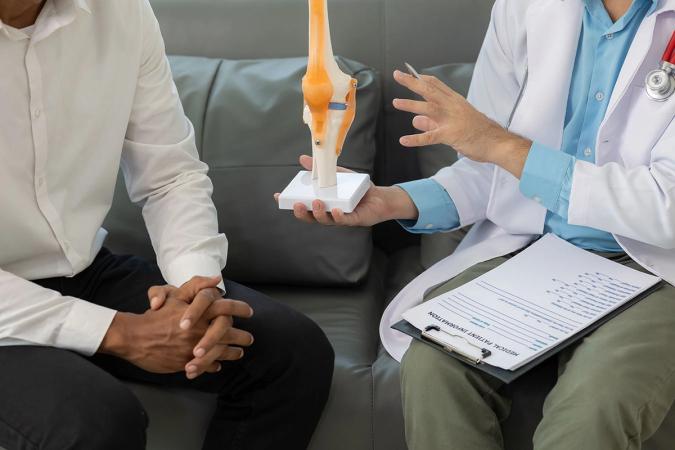question
could knee replacement surgery help improve my arthritis?
Knee replacement surgery can indeed be a viable option for improving arthritis symptoms, particularly when conservative treatments have not provided sufficient relief. Here’s a comprehensive overview based on the information in my sources.
Understanding Knee Replacement Surgery
Knee replacement surgery, also known as arthroplasty, involves removing damaged surfaces of the knee joint and replacing them with artificial components made of metal, plastic, or ceramic. This procedure aims to:
- Relieve pain: Many individuals experience significant pain relief after surgery.
- Restore function: Improved mobility can help you return to daily activities.
- Enhance quality of life: Many patients report a better overall quality of life post-surgery.
When to Consider Surgery
You might consider knee replacement surgery if:
- Conservative treatments: Your joint pain hasn’t improved with non-surgical treatments such as physical therapy, medications, or lifestyle changes.
- Daily activities: You find it challenging to perform everyday tasks due to pain, stiffness, or instability in your knee.
- Persistent symptoms: Your knee pain disrupts your sleep or prevents you from engaging in activities you enjoy.
Types of Knee Replacement Surgery
There are different types of knee replacement surgeries, depending on the severity and location of the arthritis:
-
Total Knee Replacement: This involves replacing the entire knee joint and is the most common type of surgery for severe arthritis.
-
Partial (Unicompartmental) Knee Replacement: If arthritis affects only one side of the knee, a partial replacement may be an option. This procedure is less invasive and may lead to quicker recovery.
-
Kneecap Replacement (Patellofemoral Arthroplasty): This surgery focuses on replacing the under-surface of the kneecap and its groove if these areas are primarily affected by arthritis.
Advantages and Disadvantages
While knee replacement surgery can offer significant benefits, it’s essential to consider both the advantages and disadvantages:
Advantages:
- Pain relief: Many patients experience a substantial reduction in pain.
- Improved mobility: Enhanced joint function can lead to a more active lifestyle.
- Quality of life: Patients often report a better quality of life post-surgery.
Disadvantages:
- Limitations: Some patients may experience limitations in movement or discomfort when kneeling.
- Surgical risks: As with any surgery, there are risks involved, including infection, blood clots, and persistent pain.
Preparing for Surgery
If you and your healthcare team decide that knee replacement is the right option for you, preparation is crucial:
- Consultation: Discuss the procedure, its risks, and expected outcomes with your orthopaedic surgeon.
- Physical preparation: Engaging in a pre-operative exercise program can help improve your strength and flexibility, aiding recovery.
- Weight management: If you are overweight, losing weight can reduce strain on your knees and improve surgical outcomes.
Post-Operative Care
After surgery, following your healthcare team’s advice is vital for a successful recovery:
- Physiotherapy: You will likely need to follow a physiotherapy or exercise program to regain strength and mobility.
- Pain management: Discuss pain management strategies with your healthcare team to ensure comfort during recovery.
- Realistic expectations: Understand that recovery can take time, and you may continue to see improvements for up to a year or more.
Conclusion
Knee replacement surgery can significantly improve the quality of life for individuals suffering from severe arthritis when conservative treatments have failed. However, it is essential to have thorough discussions with your healthcare team to weigh the benefits and risks specific to your situation.
If you have further questions or concerns about your specific condition, I encourage you to consult with your healthcare professional for personalised advice. They can provide guidance tailored to your health needs and help you make an informed decision about your treatment options.
This information is not a substitute for professional medical advice, diagnosis or treatment. Always consult a registered healthcare professional about matters that affect your health. Clara uses artificial intelligence to generate general information for personal educational purposes only, not intended to be a management plan and it may contain errors, inaccuracies or may oversimplify concepts.
Sources










